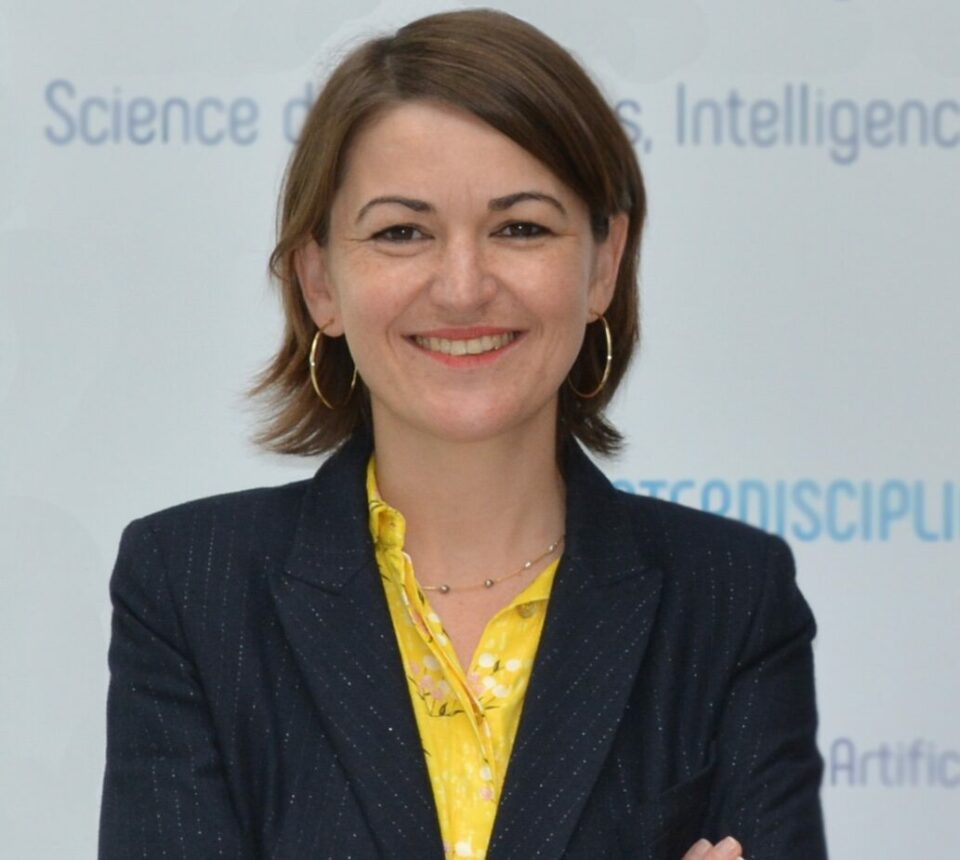Julie Josse, the missing link in statistics
A researcher at Inria, statistician Julie Josse joinedthe Desbrest Institute for Epidemiology and Public Health (IDESP) in January 2021. The specialist in missing data has been applying statistical power to the field of health for nearly ten years.

At first glance, it seems difficult to make a connection between treating head injuries and statistical research. However, since 2013, statistician Julie Josse has been working with intensive care doctors to improve the treatment of patients with multiple injuries. "From the arrival of the fire department to treatment at the hospital, there is a significant loss of information and errors in decision-making. The goal of the TrauMatrixproject is to classify accident victims in order to better guide first aid," explains the researcher.
Missing data
Statistical processing of the data collected by the thirty trauma centers involved in this project makes it possible to identify typical patient profiles based on the medical information recorded by emergency services (blood pressure, heart rate, etc.). Prior to statistical processing, Julie Josse also assists doctors in collecting data: "For statistical work to be useful, you need to know the field of application." Her specialty, missing data in statistical analysis, is essential here, as information is often missing, either because it was forgotten in the emergency or because the patient's condition did not allow for certain tests to be performed.
Another challenge of this project is to evaluate the effectiveness of treatments for head trauma. With serious accidents, clinical studies are very difficult to set up, primarily because patient consent is often impossible. Statistical analysis is therefore a means of evaluation, using the method of causal inference. "This method allows us to understand, between different treatments, whether the differences observed are actually due to the different treatments and not to other variables. We therefore need to disentangle the effects," explains the scientist. She gives a telling example, that of hydroxychloroquine: "The causal inference method has, for example, shown that the positive effects on people treated with hydroxychloroquine in hospital were linked to the youth of the patients treated and not to the effectiveness of the drug administered."
Silicon Valley
Applied to many fields, causal inference is very much in vogue. Julie Josse honed her skills as part of the Google Brain team in 2016: "A small bubble where researchers have all the resources they need to conduct fundamental research."This is not the first time the young researcher has rubbed shoulders with the scientific elite. Before joining Inria in 2020, she spent 18 months at Stanford University between 2013 and 2016, then taught at Polytechnique between 2016 and 2020. These were two very different experiences of scientific excellence: "the American friendliness of Silicon Valley versus the austerity of the French school."
Julie Josse's degree in applied mathematics from Brest did not predestine her for this prestigious career path. As a mathematician, she preferred the precision of proofs to the vagaries of statistics. The vagaries of student guidance eventually led her to a master's degree in applied statistics and then a position as a statistical engineer at Agrocampus in 2007. There, her early work on the statistical processing of sensory studies sealed her taste for the discipline. She embarked on a PhD in the statistical management of missing data, which earned her the prize for best thesis in 2010.
"The academic world of statistics is very open."
His involvement in the statistical scientific community around open access and knowledge sharing has opened doors for him. "The academic world of statistics is very open, as shown, for example, by the R project, which encourages researchers to make their statistical processing programs available online free of charge," explains the woman who was elected to the R software foundation as a result of her contributions. As a doctoral student, she organized a meeting of this community in Rennes in 2009, under the skeptical gaze of some colleagues who couldn't see how a doctoral student could rally global research in statistics. "However, leading international statisticians attended, in particular Trevo Hastie from Stanford University. This meeting earned me an invitation to visit there!"
Her encounters and the originality of her research on missing data do not explain everything. Julie Josse's career is also impressive because of her ability to systematically juggle two jobs at once: engineer and doctoral student for three years, lecturer-researcher at Agrocampus with an additional part-time job in Silicon Valley for the following three years, then professor at Polytechnique while participating in Google Brain. And during the lockdown linked to the Covid epidemic, she teamed up with emergency doctors to create an application that provides real-time information on the availability of hospital beds ( Icubam project).
With Muse funding to build her team, Julie Josse has now joined the Institut Desbrest d'épidémiologie et de santé publique (IDESP) to strengthen statistical research in health, particularly on allergies. Her Inria-Inserm team, called PreMeDICaL (precision medicine by data integration and causal learning), aims to improve patient care by combining clinical expertise with a wealth of data from multiple sources.
